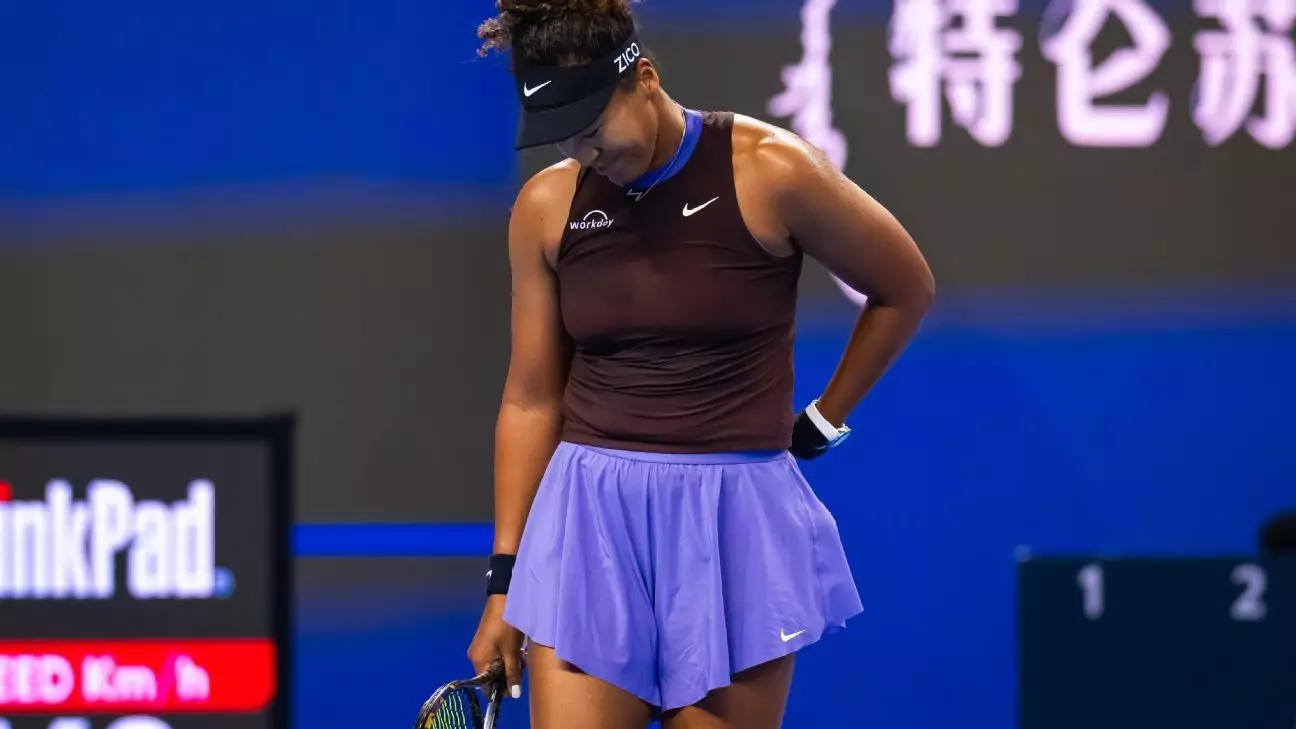In a poignant reflection of her ongoing struggles with health, tennis star Naomi Osaka recently announced her withdrawal from the Billie Jean King Cup finals set to take place in Spain. This decision marks a significant moment in her career, particularly as she aims to fully recuperate from injuries that have plagued her during the WTA’s Asian circuit. Osaka’s choice to prioritize her health rather than compete emphasizes the importance of self-care in the high-stress environment of professional sports.
Osaka has dealt with a series of physical setbacks over the season, including a troubling back issue that surfaced during the recent China Open. Reports indicate she suffered not just a strain but a more serious injury involving a bulged disc along with ruptured abdominal muscles. Such injuries are not merely obstacles; they are critical moments which challenge an athlete’s mental and physical resilience.
In her own words, Osaka described the dilemma of pulling out of crucial tournaments as a torturous decision. Competing at elite levels demands not only stellar physical conditioning but also an unyielding mental state. The strain from constant competition can lead to a cycle of injuries, and Osaka’s situation illustrates this perfectly. While she has fought valiantly throughout the year, the toll of her injury and the pressure of expectations led her to this necessary conclusion.
By opting out of the Billie Jean King Cup, Osaka is sending a clear message to herself and her followers: No title, no trophy, and no competition is worth risking long-term health. Such a stance may resonate well within the sports community, especially given how difficult it can be for athletes to make decisions that will affect their careers long-term.
Despite the disappointment surrounding her withdrawal, Osaka remains focused on her primary goal: returning to peak condition ahead of the Australian Open, a tournament where she has claimed victory twice. This goal signals not just a desire to compete, but to reclaim her status as a dominant force in women’s tennis. The former world No. 1 currently sits at 56th in the rankings, a stark reminder of the challenges she has faced since returning to the sport after a maternity break.
Adding to her path to recovery, Osaka has chosen to work with renowned coach Patrick Mouratoglou, formerly associated with Serena Williams. This decision reflects not only her intention to evolve her game but also her commitment to surrounding herself with the best support. Mouratoglou’s expertise may aid Osaka in both tactical improvement and the mental fortitude required to navigate future challenges.
As the season draws to a close, Naomi Osaka’s journey exemplifies the complexities faced by elite athletes. Her choice underscores the significance of health over competition, a lesson that echoes beyond tennis. While setbacks inevitably arise in the quest for greatness, prioritizing recovery can be the first step toward a comeback. With a year of reflection and focused training ahead, fans and followers of Osaka eagerly await her return, hopeful for her resurgence in Australian Open 2024.


Leave a Reply